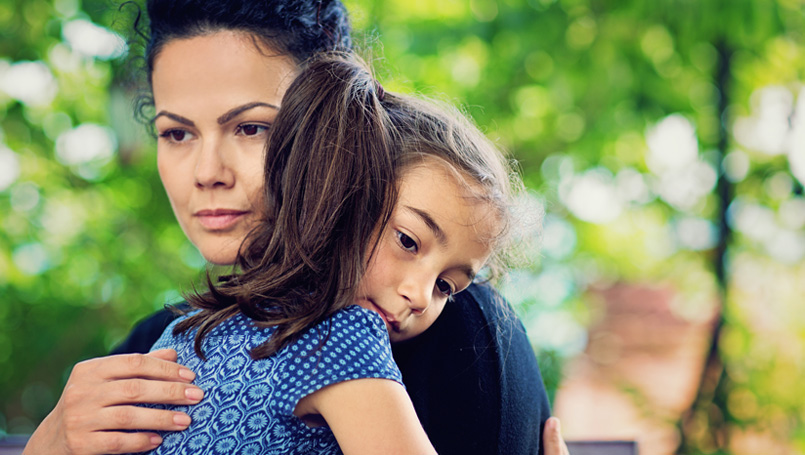
Whether natural disaster, mass shooting or threat of war, children can’t escape hearing about shocking or upsetting news.
Parents may do their best to shield their children from news of these tragedies or uncertainties, but kids will almost certainly hear about these situations from other kids or online.
Sometimes, the anxiety or incessant worrying can have a negative impact on their attitude and health.
WHAT TO LOOK FOR
Every child is different, but there are some indicators that may tip you off that current events are starting to affect your child.
Some typical types of behavior seen in children experiencing fear and anxiety might include:
- insomnia
- nightmares
- a need to stay close to mom and dad
- fidgeting
- nail-biting
Ron Samarian, M.D., chief of psychiatry, Beaumont Hospital, Royal Oak, says, “Problematic bathroom issues may also indicate increased anxiety. Repetitive questioning would indicate evidence of the need for reassurance.”
Dr. Samarian adds that it wouldn’t be unusual to see some children play acting with guns as a means to overcome certain fears as well.
WHERE WORRY COMES FROM
Children are often genetically endowed to worry, though some learn this from parental behavior.
“It’s sort of six of one and half dozen of the other,” explains Dr. Samarian. “We are all a combination of our genetic heritage and what we learn.”
Because a child not realize that their worries are exaggerated or unrealistic, they may not be able to properly express them.
CONVERSATIONS WITH YOUR CHILD
When having a discussion with your child and trying to alleviate their fears, Dr. Samarian recommends keeping the language “simple and matter-of-fact.”
“Explicit or gory words would be wise to avoid. There’s no need for children to hear excessive details,” he advises.
Make sure you’re opening up a clear line of communication. Give them an opportunity to tell you how they feel and what their concerns are. Answer the questions honestly, but in a way they can understand. It reasonable to ask your children about what they’ve heard and what their thoughts are about this.
If your child’s worrisome behaviors aren’t subsiding, consider speaking with your pediatrician.
